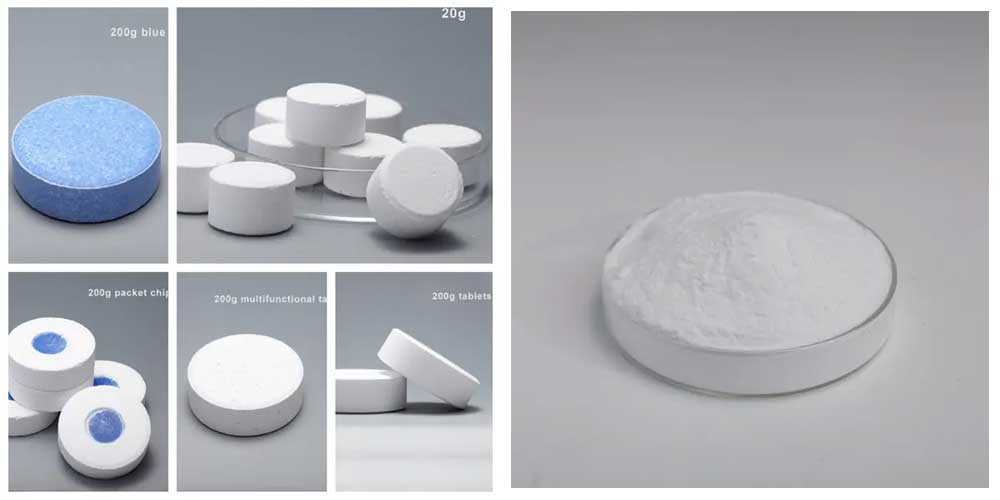In agricultural production, whether you are growing vegetables or crops, you cannot avoid dealing with pests and diseases. If pests and diseases are prevented in a timely manner and the prevention is good, the vegetables and crops grown will not be troubled by diseases, and it will be easier to obtain high yields, which will improve the efficiency of growing crops. There are many kinds of fungicides on the market, and each sterilizer has its own characteristics and unique sterilization and disease prevention effects. Trichloroisocyanuric acid is an organic compound. Trichloroisocyanuric acid is safe for humans and animals and has no pollution. I wonder if anyone has used it.
Trichloroisocyanuric acid (TCCA) has the effect of disinfection and sterilization. It has a rapid killing effect on some fungi, bacteria, viruses, etc. It is an extremely powerful disinfectant, oxidant, and chlorinating agent. Its use in agriculture is generally not limited by pH. With its stable chemical properties, safe and reliable prevention and control effects, and low cost investment, it can achieve very good results. To prevent and control diseases of vegetable crops.
TCCA works very well on crops and has a strong ability to kill bacteria, fungi and viruses. By spraying the leaves of plants, trichloroisocyanuric acid will release hypobromous acid and hypochlorous acid, which have the strongest killing effect on pathogens, bacteria and viruses on plant leaves.
Trichloroisocyanuric acid has a fast sterilization speed. After being sprayed on crops, pathogenic microorganisms that come into contact with the drug can quickly penetrate the cell membrane of the pathogenic microorganisms and be killed within 10 to 30 seconds. Trichloroisocyanuric acid It has very strong diffusion, systemic and conductive capabilities. It has a very good protective effect on fungi, bacteria, viruses and other diseases that may be infected by vegetables and crops. It can also eradicate some pathogenic bacteria. It can quickly block some pathogenic bacteria that can invade through wounds to prevent pathogenic bacteria from invading through wounds. Spraying in the early stages of bacterial disease can minimize the losses caused by the disease.
The use of TCCA can be carried out by seed dressing and foliar spraying. For general vegetable crops, in the early stage of the disease and prevention before the disease occurs, 1500~2000 times of trichloroisocyanuric acid can be sprayed and diluted by the secondary dilution method. Grain crops can be sprayed with 1000 times liquid. Spraying should be done carefully, evenly and thoughtfully.
Trichloroisocyanuric acid acts as a Disinfectant and can be mixed with most pesticides. However, any pesticide has its advantages and disadvantages. This is inevitable. Trichloroisocyanuric acid solution is slightly acidic and cannot be mixed with alkaline pesticides. In order to improve the use effect, it cannot be mixed with organophosphorus pesticides, potassium dihydrogen phosphate, urea, ammonium salt pesticides, foliar fertilizers, etc. The effect of treating diseases is not as good as the effect of prevention. When spraying trichloroisocyanuric acid to prevent diseases When spraying, it is necessary to spray more than two times with an interval of 5 to 7 days for better results.
However, it should be noted that not all crops may be suitable for TCCA, and the specific judgment depends on the characteristics of the crops. Please consult relevant personnel if necessary.
Post time: Apr-09-2024


